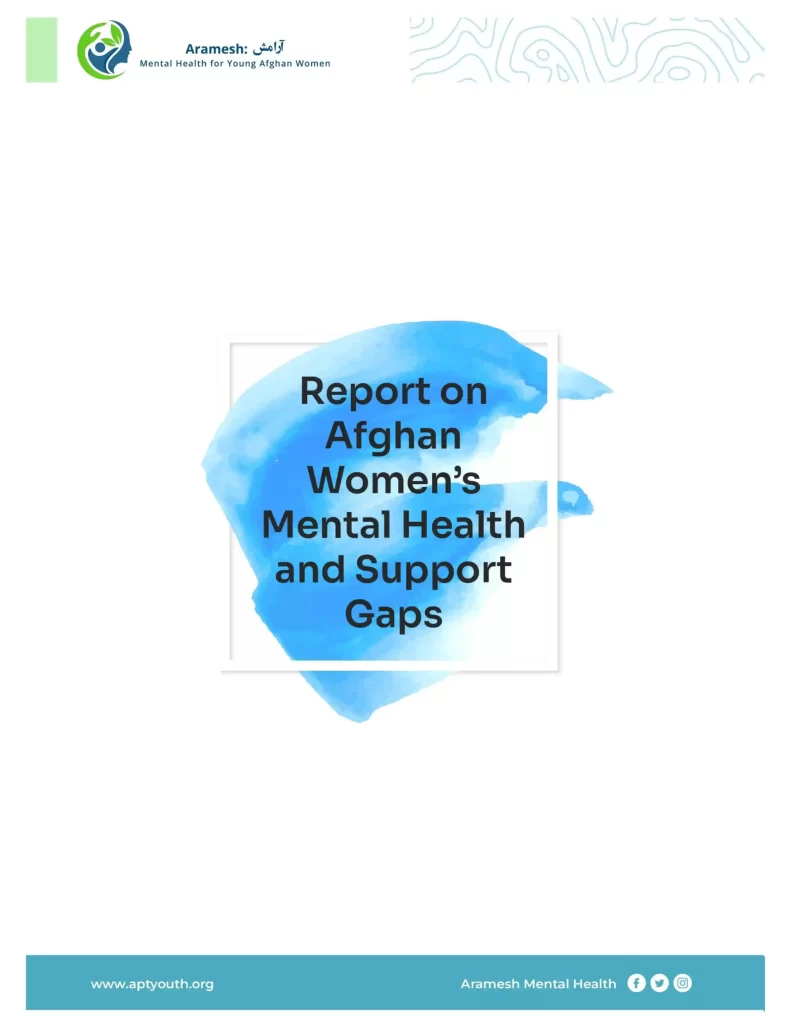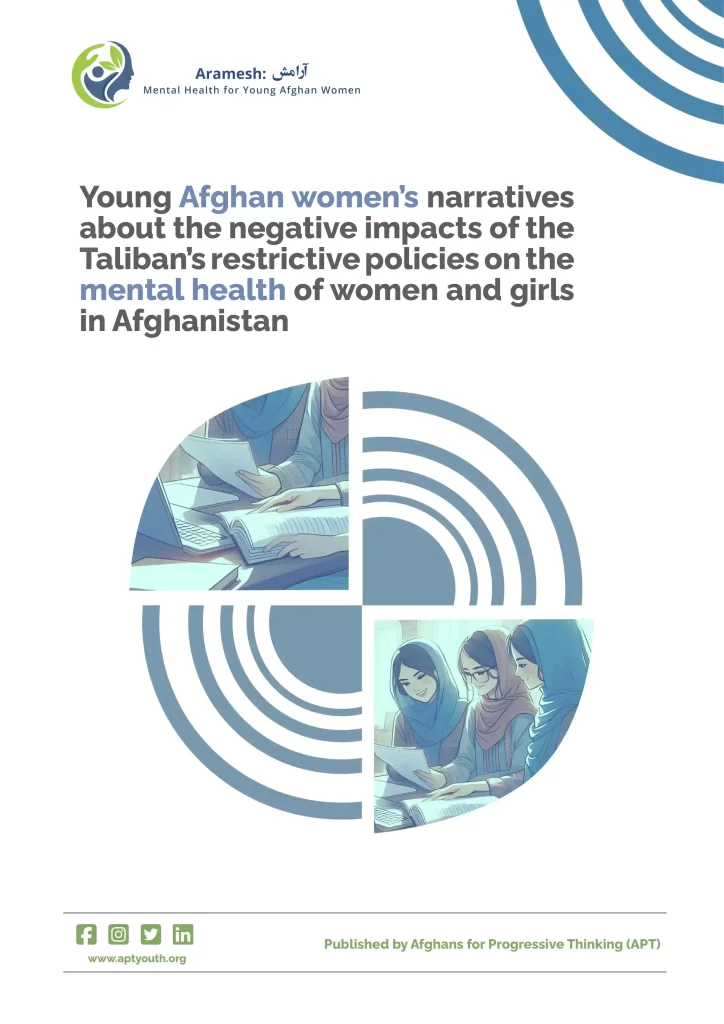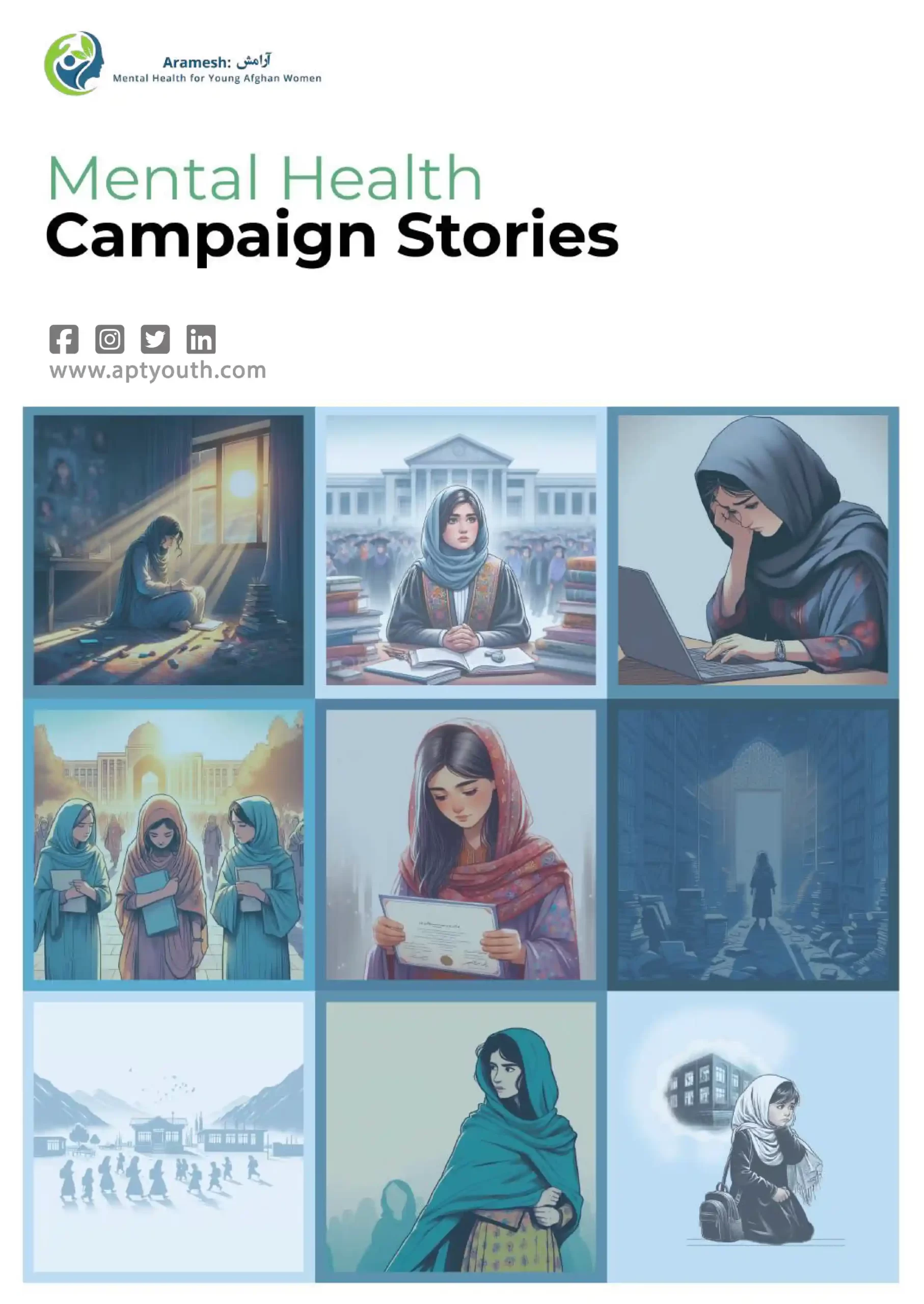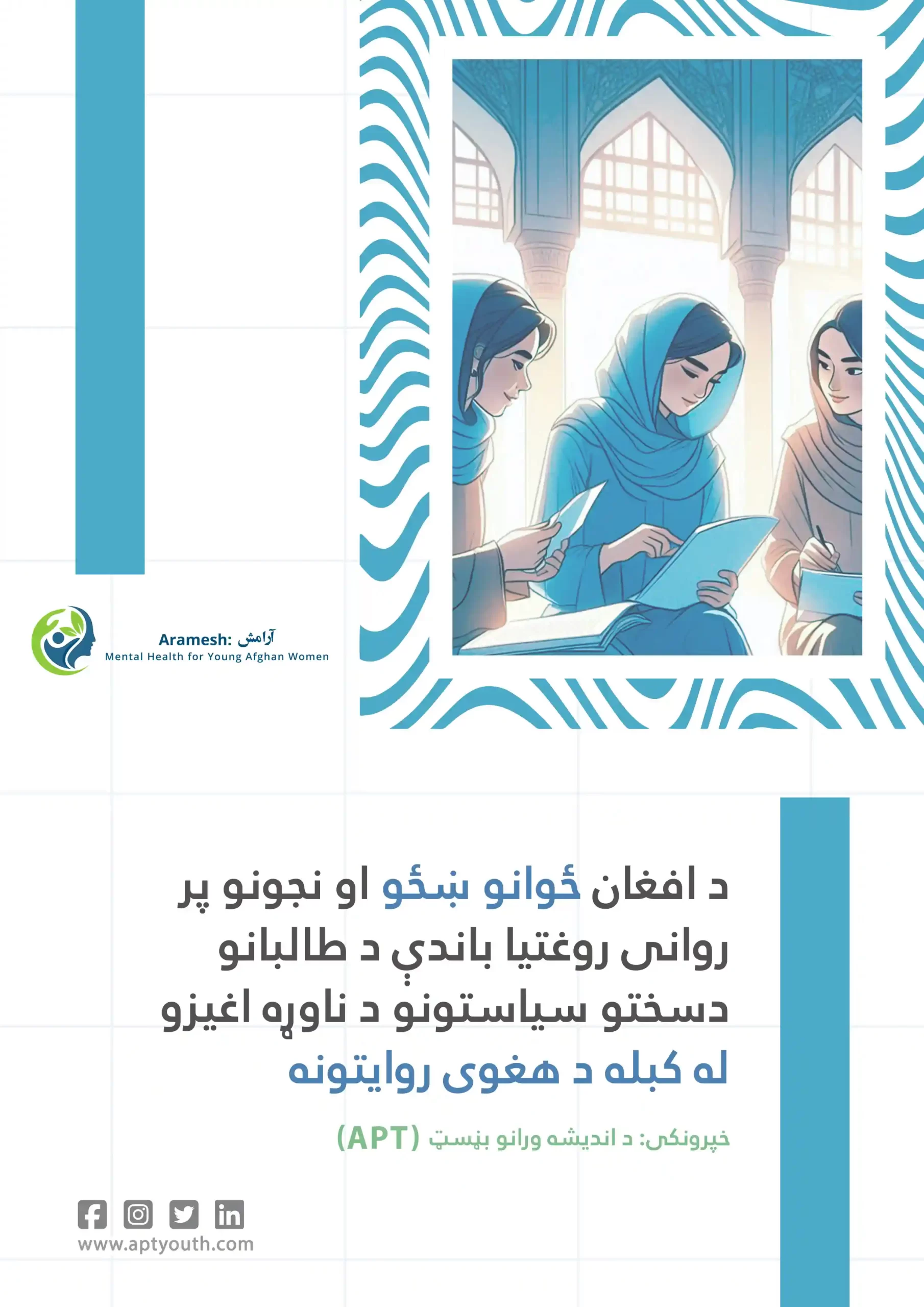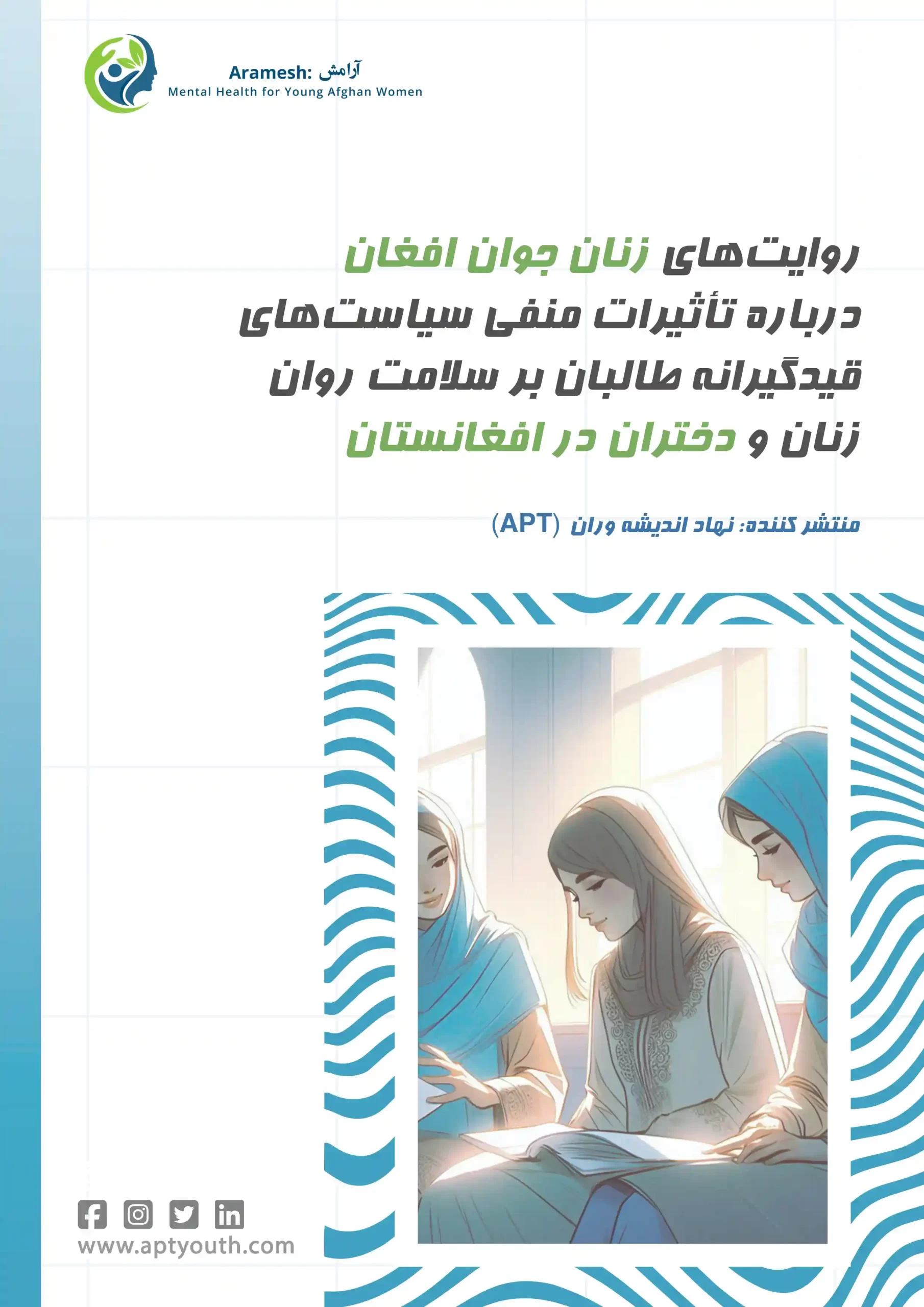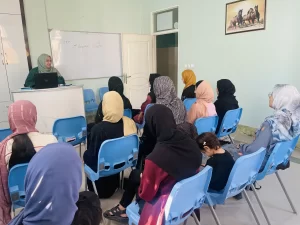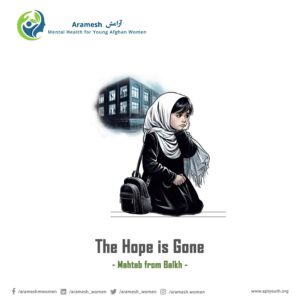Mental Health
Would you like to examine our comprehensive collection of Publications in greater detail?

Introduction
The mental health crisis among young women in Afghanistan has deepened significantly under the restrictive policies imposed by the Taliban. These measures, including the ban on higher education, have left millions of young women isolated, silenced, and grappling with anxiety, depression, and trauma. Many of these women were university students in Afghanistan, but today, they face overwhelming challenges that affect not only their emotional well-being but also their ability to navigate daily life.
APT addresses these pressing issues by creating pathways for young women to better understand their mental health experiences and develop effective coping strategies. Activities are tailored to help participants manage the impacts of trauma, anxiety, and depression, empowering them to reclaim their emotional strength and resilience.
Objectives of our Mental Health Program
Equip young women with the knowledge and tools to understand and process their personal experiences under restrictive conditions.
Provide strategies and resources to help participants manage stress, trauma, and emotional challenges effectively.
Support young women in addressing feelings of anxiety, depression, and hopelessness, preventing extreme measures such as self-harm or suicide.
Support young women in building emotional resilience to withstand the uncertainty of their educational futures while fostering hope and encouraging continuous self-growth and development.
Building Bridges of Support
APT also focuses on creating a strong and supportive network for young women, recognizing the challenges and restrictions they face in Afghanistan. By connecting them with others experiencing similar circumstances, the we aim to foster a sense of solidarity and shared understanding. This network not only provides emotional and practical support but also opens avenues for collaboration and collective problem-solving.
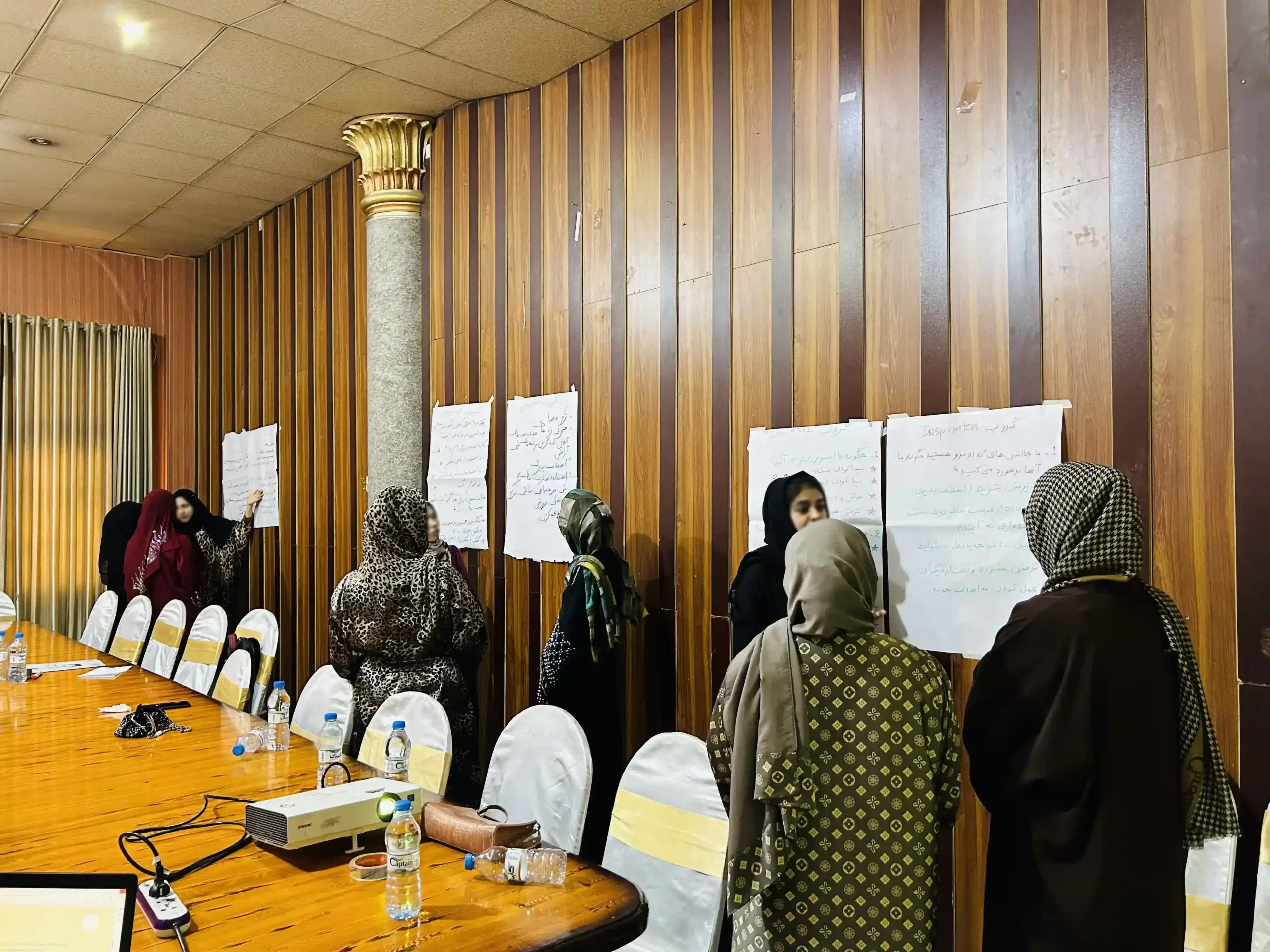

Our impact
We have supported over 60 young women university students in Kabul, Kandahar, Herat, and Nangarhar provinces in their journey toward resilience and empowerment. These participants have benefited from programs focused on trauma healing, leadership development, stress management, and other important skills tailored to their unique challenges. Our initiatives helped them regain confidence, emotional well-being, and foster their ability to lead and inspire within their communities. This impact extends beyond the individual participants, creating positive change in their families and society at large.
Reports
Report on Afghan Women’s Mental Health and Support Gaps.pdf
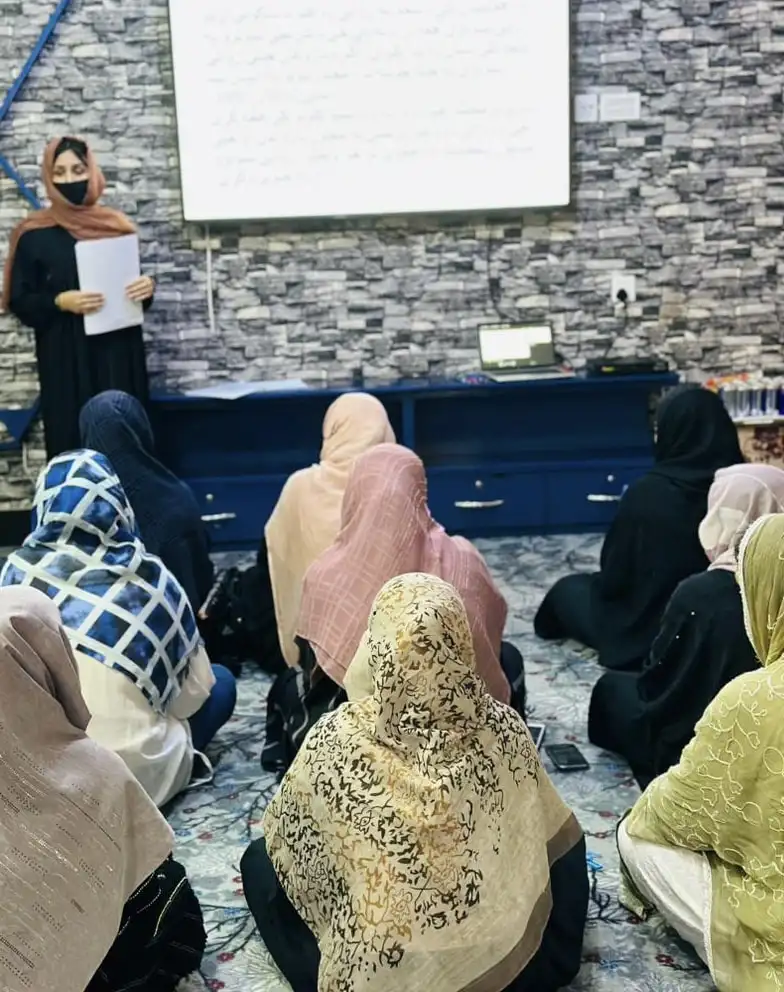
Amplifying Voices and Advocating for Mental Health in Afghanistan
APT is committed to amplifying the voices of young Afghan women and addressing the urgent need for mental health awareness in Afghanistan. We provide a platform for young women to share their personal experiences and perspectives on the mental health challenges faced by women and girls across the country. Their reflections is not just storytelling, it also offers recommendations to improve the mental health and well-being of Afghan women and girls. By fostering dialogue and raising awareness, we aim to not only shed light on the mental health crisis but also inspire policymakers, community leaders, and international stakeholders to take meaningful action.
Publication Of
Mental Health Program
Young Afghan women’s narratives about the negative impacts of the Taliban’s restrictive policies on the mental health of women and girls in Afghanistan
Today, millions of girls and women in Afghanistan face daily struggles with trauma, anxiety, depression, and suicidal thoughts.

